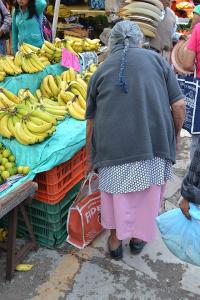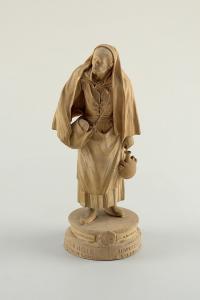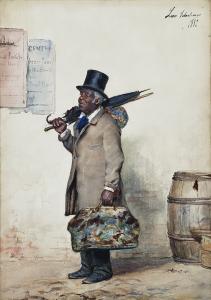Difficulty lifting 5 kg may indicate reduced quality of life and a range of chronic diseases, according to scientists

The research, according to co-author Prof. Azhar Hussain of the University of Sharjah, offers highly practical applications, furnishing the elderly with a simple, inexpensive, and accessible way to self-assess muscle weakness by lifting a common 5-kilogra
The inability of older adults aged 50 and above to lift an object weighing 5 kg heralds the onset of numerous chronic diseases and poor well-being - scientists
SHARJAH, EMIRATE OF SHARJAH, UNITED ARAB EMIRATES, June 10, 2025 /EINPresswire.com/ -- Elderly persons who find it difficult to lift an object weighing 5 kilograms run the risk of developing a host of chronic diseases and musculoskeletal conditions that can significantly lower their quality of life, a study led by scientists from the University of Sharjah in the United Arab Emirates has revealed.
The scientists confirm their findings following an investigation that involved over 51,000 older adults aged 50 and above from 15 countries. “We tracked them over time to see if their ability to lift 5 kilograms was connected to developing various health conditions in the future. What we found was quite significant,” said Professor Rizwan Qaisar, the study’s first author.
“People who reported difficulty lifting 5 kilograms had a significantly higher risk of experiencing a lower quality of life, higher rates of depression, chronic lung diseases, hip fractures, joint disorders, high cholesterol, Alzheimer's disease, stroke, and osteoarthritis.
“Interestingly, this connection held regardless of their age or gender. Our findings strongly suggest that this simple, everyday test could be a valuable early indicator of overall health and potential future health challenges.”
In the study, published in the journal Scientific Reports, the authors emphasize that they initiated their research to develop a simpler and more accessible method for assessing muscle strength, one that anyone could perform at home. The current methods doctors use to measure muscle weakness require expensive devices that only clinics can afford. (https://doi.org/10.1038/s41598-025-03128-y)
The difficulty in lifting something weighing 5 kg is mainly attributed to muscle weakness, as our muscles are known to become weaker as we get older.
Muscle weakness is not just a minor inconvenience but a serious warning for overall health, says Prof. Qaisar, adding that traditionally, doctors have measured muscle strength with special clinical devices. “While these devices are good, they are expensive, hard to get, and in need of regular upkeep.
“That's where the idea of being able to lift a 5-kilogram weight came in. Think about it: a bag of sugar, a small pet, or a common kitchen appliance often weighs around 5 kilograms. If someone struggles to lift this amount, it might be an early sign of muscle weakness.”
There are no exact statistics on the number of people suffering from muscle weakness, but the World Health Organization estimates point to approximately 1.71 billion people having musculoskeletal conditions worldwide, which significantly limit mobility and dexterity. Muscle weakness in the U.S. is reported to occur in about 5% of adults who are 60 years and older.
The authors describe muscle weakness as “a risk factor for multiple diseases.” However, they maintain that most of the current protocols assessing muscle weakness require clinical settings, and to their knowledge, there is no relevant study in the literature to help the elderly measure muscle weakness on their own.
The scientists write, “We investigated the associations of difficulty lifting 5 kg with various musculoskeletal, cardiovascular, metabolic, and neurological diseases in geriatric adults aged 50 or above from 15 countries (n = 51,536) over five years.
“Collectively, difficulty lifting 5 kg can herald the onset of several cardiovascular, neurological, and musculoskeletal disorders along with a reduced QoL (Quality of Life). We suggest that difficulty lifting 5 kg may be a valuable indicator of muscle weakness and poor health in domestic settings.”
The authors’ study falls within the realm of public health as it provides universal assistance to measure muscle weakness. “Lifting 5 kilograms: a simple act, a powerful health predictor. No fancy gear needed. Our findings put early health assessment in everyone's hands," says co-author Dr. Fabio Franzese from SHARE Berlin Institute, Germany. "Muscle weakness isn't just a sign of aging; it's a profound warning for future disease."
The scientists derive their data from the Survey of Health, Ageing, and Retirement in Europe (SHARE) conducted between 2013 and 2020. They note that “Overall, 10,025 (19.5%) respondents exhibited difficulty lifting 5 kg at baseline in 2013.
They maintain that in the four years since 2013, the participants having difficulty lifting an object weighing 5 kg exhibited higher risks for developing a low quality of life (9.42%), depression (8.14%), low handgrip strength (7.38%), and osteoarthritis (6.98%) after adjusting for age and gender.
They show that the respondents run mild to moderate risks of having “rheumatoid arthritis, heart attack, diabetes mellitus, hypertension, Alzheimer’s disease, stroke, or hip fracture.” Adjusting their results for age and country, they find the risks of developing various diseases are higher in men than in women.
“We discovered that if older adults have trouble lifting a simple 5-kilogram weight, they're at a much higher risk for a whole range of health problems down the road,” Dr. Qaisar points out. “This includes conditions such as feeling depressed, having a lower quality of life, chronic lung issues, hip fractures, arthritis (both rheumatoid and osteoarthritis), high cholesterol, strokes, and even Alzheimer's disease.”
Prof. Qaisar touts the method the research adopts to measure muscle weakness as “a really easy, no-cost way to get an early heads-up about potential health issues. You don't need fancy equipment, just a common household item.
“Imagine you're at home, and you pick up a bag of groceries, maybe something that weighs about 5 kilograms – like a big bag of sugar or a small kitchen appliance. If you find yourself struggling with that, it might seem like a small thing, but our research shows it could be a really important clue about your health.’
The research, according to co-author Prof. Azhar Hussain of the University of Sharjah, offers highly practical applications, furnishing the elderly with a simple, inexpensive, and accessible way to self-assess muscle weakness by lifting a common 5-kilogram object. “Difficulty in lifting the object, the research proves to be an early warning sign for various age-related health conditions.
"Before major illness, there's often a subtle struggle. This test offers a crucial window for intervention. The test empowers people to seek early medical advice, motivates healthier lifestyle choices, and offers healthcare providers a valuable preliminary screening tool to identify at-risk individuals, ultimately improving preventive care and public health outreach for older populations.”
LEON BARKHO
University Of Sharjah
+971 50 165 4376
email us here
Legal Disclaimer:
EIN Presswire provides this news content "as is" without warranty of any kind. We do not accept any responsibility or liability for the accuracy, content, images, videos, licenses, completeness, legality, or reliability of the information contained in this article. If you have any complaints or copyright issues related to this article, kindly contact the author above.


